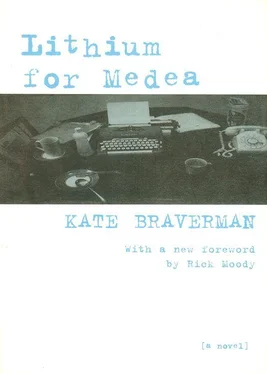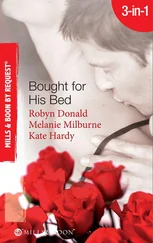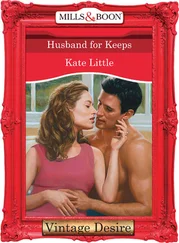I was waiting for the doctor in his nice white coat. I was waiting for the bad news about Daddy’s throat. This is the last white scene. He is bleeding. His neck is falling apart, collapsing under the white gauze. He is coughing in his sleep. It is his last dream. He hears an ambulance scream into the hospital parking lot. In his dream it is the wail of boys playing softball in a vacant field, Bronx farmland then.
Suddenly I wished the house were completely empty, stripped of the false unnecessary residues. Why, the walls were a kind of membrane. Didn’t they breathe and lean? Didn’t they long to feel the sea breeze sting them naked, unadorned? Didn’t they yearn to be freed?
I gathered the undeniable hard evidence of my life with Francine. I made a neat pile of Greek peasant blouses, Mexican wedding dresses and French silk scarves. I wrapped hand-painted vases carefully in newspaper. I filled up cardboard cartons and carried them to the trunk of my car.
The phone was ringing. I ran back into my house. The air rattled and broke off in sharp spinning narrow white spokes, like arrows. The sound scratched my face. My heart started racing. I could feel myself getting ready to run. The phone seemed to snap and growl. Afraid, I reached out for it, reached out to quiet it.
“I’m worried sick,” Francine said. “I couldn’t hit a ball to save my life today. I think he’s dying.”
“Don’t think that. Thoughts have a certain power.”
“You sound like you’re taking LSD again.”
“I’m not. Don’t dissipate your energy.”
“What energy? I feel like I’m dying. I’ll be all alone. I’m getting old. It doesn’t show, but I feel it. In my bones.” Francine began to cry. In the background there was talking and the sound of plates clattering, the special rattle of china and glass. “I don’t know what to do,” Francine admitted.
“You’re doing it. We’re on defense. We’re on the one-yard line. We hang tough.” Who was talking? Outside my window the canals were slowly browning. Autumn on the canals.
“What if the skin graft flops?” Francine blew her nose.
“It won’t. We won’t let it.”
“I wish you didn’t hate me,” Francine began. “Fred says it’s temporary, a phase. He’s been in analysis twenty-two years. He says I’m threatening to your identity. You feel competitive. Is that why you’re so ungiving, so hostile? Fred says—”
“Fuck Fred.” Outside my window two young boys climbed the bridge over Eastern Canal. They dropped small rocks into the water. I noticed they had a bag filled with rocks. They began throwing them at the ducks.
“Fred is something special,” Francine whispered. “I’m in the Polo Lounge waiting for him. He had a meeting at Warner’s this afternoon.” Francine sucked in her breath. “I think this guy is it.”
She thought each man was it. They were intelligent, vital and alive. They had whole histories packed solid with immutable hard evidence like Harvard and town houses and Panamanian bank accounts. Then they failed her. The well ran unexpectedly dry. Winds began howling again. And suddenly she was sitting alone on the stoops in front of a row of identical dark brick buildings where it was always winter and she never had a key.
“I’m worried,” Francine said. About my father? About the deal at Warner’s?
“It’ll be O.K.” I hung up.
It was beginning to get dark. The newly stripped walls sucked at the shadows. New dark nests formed.
“Spring cleaning?” Jason asked. He walked into the half-empty living room. He noted the blank walls. He looked at me.
I shrugged. I knew the cardboard boxes had to be packed. I was cutting grooves through the glue inside me. It was as if I had somehow stumbled on a new dimension. There was change, after all. Days did not simply rise and fall, open and blink shut one after another, unbroken, inexhaustible and meaningless. There were certain extraordinary events that altered the course of things. One had simply to wait for these events and in time they would shake apart the old order. Change was a river, snaking and dancing, fat with fresh melted snow, now cutting a channel through a mountain, now bending, now flooding, now rearranging the shape of the soft valley floor.
My father was going to die if the skin graft didn’t work. My father’s face was a swollen black smear in a white frame, a gauzy white casing. He was wearing a collar around his neck. The bandages sprouted feeding tubes. He was being watered like a plant.
“Can you feed a hungry man? A man with his own spoon?” Jason smiled. I watched him take the glass vial from his pocket.
I would be a collection of starsides soon. I would be a bleached moon soon. I would be swirling white hot beyond naked, beyond bone. In the beginning, white sun, white foam, a sudden unexpected churning.
“Is this premeditated? The way you don’t talk to me?” His voice was soft. It rubbed against the shadows.
“Hardly.” I was measuring water into the spoon. “One thing I’ve learned from you is never plan anything.”
Jason glanced at my arm. “You’re not cut out for this,” he said, his voice still soft. “You’ve got to slow down.”
“I’m going to quit soon.”
“Quit now.”
“Why? You never liked me as a hausfrau,” I said matter-of-factly.
“I don’t like you as a junkie, either.”
“We have no range, you and I. That’s the problem.” I was tapping the sides of the syringe. “We can bite or be bitten. There’s nothing else. In between, we yap and howl like kicked dogs. Yap and lie in the dust.”
I stood up. I pulled the kitchen curtains closed. I offered my arm to Jason. I shut my eyes. Outside, the canals were sealed and locked into the night. Then he pushed the needle in.
I woke before dawn. I had slept a drugged sleep, dozing and tossing. It was like drifting on a too calm silvery sea. I kept glimpsing slivers of stars.
I sat on my front porch. The gray haze covered me, a kind of wave.
Dear Rachel,
You sound so well and so quickly. And so many questions like a flock of singing seabirds. I think of a certain bloated white bird circling the harbor at Ensenada, swooping down for the tossed heads of cut bonita, screeching at the rusty burned-out boats. Birds fatter than longed-for children. You see, I have a certain distrust for the sudden. It’s not easy to erase what was. And the genuinely new emerges slowly, one pale part of an inch at a time.
You want to know more about the family? Our family grief is flat and wide as those dark barren lands that strained us through cursed generations. Our history unwinds in slow pieces like a bolt of wine-red velvet then in fashion at the Czar’s court.
They were peasants, Rachel. They were the poorest kind of farmers. They were rootless and ignorant, arrogant and despised. They knew better than bowing down to the North Star to ensure the fertility of their goats and cows — but barely. Their religion had become portable and abstract. They were confused by and simultaneously proud of their sheer alienness, their undecipherable manuscripts and haircuts. They burrowed, isolated and dark as the poor shubbery, the monstrous skies pouring always too much or not enough.
The original landscape did something to our eyes. I believe people grow the organs they need. Our eyes are enormous, eyes stained by Polish skies, eyes of the ghetto and suspicion. We have the mutant eyes able to see the periphery, to detect disasters waiting in shadows — Cossacks, droughts, pogroms, floods, and the idiosyncrasies of kings.
Has your mother told you nothing?
They came in slow pieces. First Rose’s father, Joseph. He called himself a tailor, had tuberculosis and went blind hemming and saving pennies to bring the others across the Atlantic in steerage, almost like pieces of freight. In the end there were sixteen blood relatives in a three-room East Side tenement.
Читать дальше












